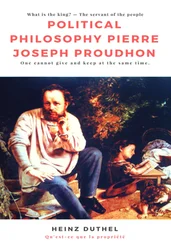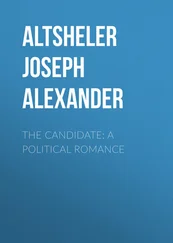While liberal individualism is a fairly abstract political theory, it has considerable real-world implications for how Americans think about politics. (Hartz considered Lockean liberalism to be a hegemonic political ideology that had lamentably circumscribed the collective aspirations and political possibilities of the American people.) While Locke’s social contract theory was designed to justify and legitimize government power (in Locke’s case, England’s Glorious Revolution, 1688–1689) – to put it on firm foundations derived from the free will of sovereign, independent individuals – it also has the perhaps ironic effect of simultaneously subverting that power by implication. It is potentially subversive of the power it legitimates by underlining that, if government does not serve the ends for which it has been created, the social contract has been violated, and, as such, is rendered null and void. A contract, in other words, can be broken. And, if it is, the parties are released from their obligations, and all bets are off. Pursuant to what Locke deemed the (natural) right of revolution, the people perpetually retain the sovereign right “to alter and abolish” the government for a failure to achieve, or for betraying, its contracted aims.
The Lockean liberal understanding of the origins of free governments holds that government powers are delegated by the sovereign people for specific ends – and those ends only. Any powers exercised by the government not directed toward those ends, or in violation of the rights for which government was created to protect, are, under the paradigm, considered illegitimate exercises of governmental power. As such, many attribute familiar features of American political thinking – the deep (and sometimes conspiratorial) suspicion that the government is exceeding its rightful powers (anti-statism); the persistent demands for the recognition of individual rights by proponents of civil liberties and civil rights; and hot-headed threats of rebellion and revolution in the name of freedom (think the recent militia or Tea Party movements on the Right) – to the Lockean liberal paradigm that has ostensibly held the country in its grip from its inception. Many have commented on what seems like the country’s congenital suspicion of authority, per se – the prickly affinity of Americans for the idea that nobody gets to tell someone what to do unless he or she has (expressly?) delegated that authority to that person. They have fingered that suspicion as the root cause of the much remarked upon sense of atomization and isolation in American life, arising out of the orienting liberal assumption that it is, in the end, everyone for him- or herself.
Surveys of public attitudes suggest that, in contrast to Western Europeans, most Americans believe that we are all free to rise by our own efforts. The sometimes unstated implication is that if someone fails it must have been for a lack of such efforts, a personal failing. By these lights, in a free country individuals are authors of both their own successes and their own failures. Society’s “losers” are not entitled to any assistance from the government, whose chief, and perhaps sole, purpose is to set the rules of the game for the free play of the ordered liberty of free individuals. This thoroughgoing individualism, Louis Hartz complained, made Americans especially resistant to any recognition of class consciousness, perhaps pre-eminently among the working class. The Lockean liberal framework may also be responsible for the generalized sense of anxiety, workaholism, and competitiveness, for the special attraction Americans seem to have for naming winners and losers, and even the culture’s running undertone of violence. A saying displayed in the entryway of a prominent American business school in Texas nicely captures the general mood, and anxiety: “There is no status quo in American life: you are either on your way up, or on your way down.”
Liberal Foundations, Themes, and Political Preoccupations
1 Individualism
2 Individual rights/rights consciousness, with special value placed on rights to labor, property, and religious toleration and liberty
3 Limited government, held to have originated by consent, pursuant to a social contract
4 Rule of law
5 [Liberal] constitutionalism
6 Separation of the public and private spheres
7 Right of revolution for violation of the terms of the original agreement upon which government was founded
In the 1960s, the historians J.G.A. Pocock, Bernard Bailyn, and Gordon Wood launched the first scholarly salvo against the Hartz thesis. These historians of the founding era argued that in that seminal period at least – and, hence, perhaps in others going forward – a quite different political thought tradition, republicanism (sometimes styled “civic republican” or “classical republicanism”), had been ubitquitous for anyone who troubled to look. This challenge to the Hartz thesis launched “the liberal–republican” (or, in a slightly different guise, the “liberal–communitarian”) debate among scholars of American political thought. For a time, scholars lined up as partisans arguing for the ideological predominance of one framework or the other, either at the founding, in other periods or moments of American history, or across it, or within identifiable spaces and subcultures within the American political order.
While liberalism is a product of political modernity, republicanism’s lineage dates back to ancient Greece and Rome. “Classical” republican thought was rediscovered and revived during the Renaissance (including by the Italian political philosopher Niccolò Machiavelli in his Discourses on Livy , 1531; interestingly, Machiavelli was also the author of the proto-modern political theory masterpiece The Prince , 1532). That current of classical and Renaissance thought was then – most proximately as concerns American political thought, as revised and, in some sense, reimagined for a modern context – drafted into service in the extended seventeenth- and eighteenth-century political struggles between the English Crown and Parliament. As Englishmen, the American colonists were steeped in this politics of their mother country. That politics was the prism through which the American colonists came to understand their crescendo of grievances with the English Crown in the aftermath of the French and Indian War (1754–1763). This framing informed the political thought that fomented the American Revolution.
Instead of starting with a posited sovereign individual in a state of nature, republicans, following Aristotle, began by stipulating the social and political – the inherently communal nature – of man. (Aristotle, Politics : “Man is a political animal.”) The republican writers of ancient Greece and Rome – Aristotle, Polybius, Cicero, and others – were widely read by the North American colonial, revolutionary, and early republic elites as part of their classical educations, which often included instruction in the original ancient Greek and Latin languages of such works. Seventeenth- and eighteenth-century English “country” political thought had enlisted classical republicanism to challenge the authority of the English “Court” and Crown. When, not long afterward, the colonists found themselves with their own growing list of grievances against the Court and Crown (George III), they were primed by both these ancient and English predecessors to read their grievances through republican lenses.
Classical republican thought struck themes that were different from – and, in some cases, the antithesis of – individualistic liberalism. Perhaps foremost was the foundational, a priori commitment to the common good (the word “republic” itself derives from the Latin res publica – “public things”). Republicanism glorified the “free state” – the independent polity, understood as one body, indivisible, directing its own collective life and destiny, free from foreign subjugation or constraint. Liberty is of surpassing value to republicans. But the emphasis within republican thought was on the understanding that no individual within the polity was truly free unless the community of which he was a part was itself, as a body, free. Republican thought, moreover, placed surpassing value on the virtue – the “civic virtue” – of republican citizens, with virtue itself defined as involving the pursuit of the common good. Republicanism holds that the preservation of individual and collective freedom depends on the virtue of ordinary citizens, their selfless and patriotic devotion to the principles of a free republic, and the common political project. This entailed, and was evidenced by, a willingness of citizens to sacrifice their own personal or private interests for the greater good. As such, whereas liberalism valorizes individual rights, republicanism entails a strenuous, and even austere, devotion to duty. Virtuous republican “citizens” (a republican concept) are expected to directly and actively participate in public life, not to advance their private or partial interests, but to work together with their fellow citizens to advance the common good. (The reliance on elected “representatives” in deliberative bodies, or mercenaries in war, was considered by republicans to be a corruption – evidence of a want of responsibility, citizenship, and duty.) Put otherwise, citizens were understood to be directly responsible for the exercise and preservation of their own freedoms. (As such, republicans traditionally spurned standing armies in favor of citizen militias.) In this regard, many speak of liberalism being anchored in “negative” conceptions of liberty (where liberty is preserved by the limitations imposed on the powers of government) and republicanism in conceptions of “positive” liberty (where liberty is manifested as a free people’s active exercise of their power to make their own laws, to set their own collective path, and realize their own common political project). 3It is characteristic of republicans to be perpetually apprehending the freedom of their polity to be under threat, whether from internal corruption or external subversion or predation.
Читать дальше












